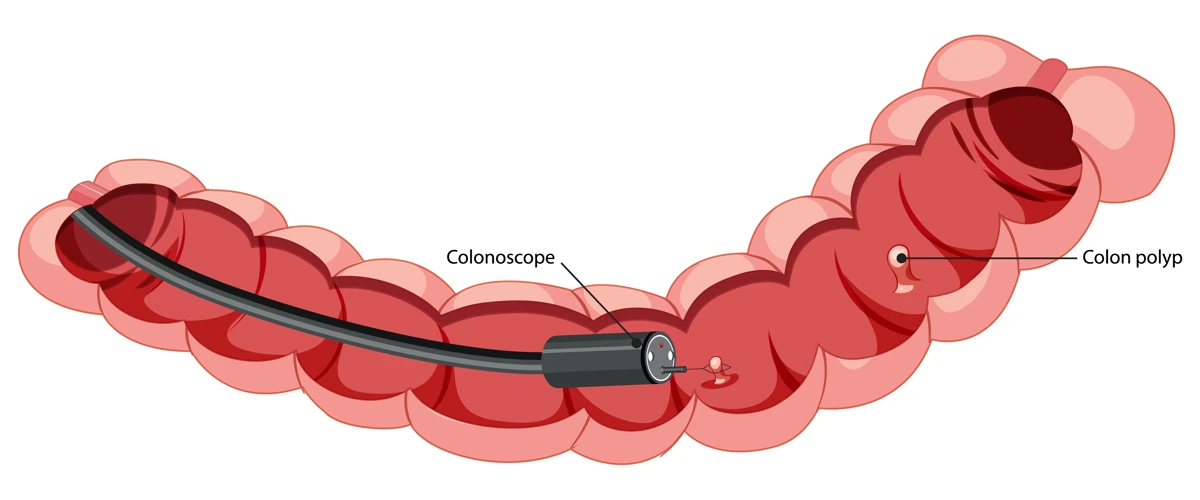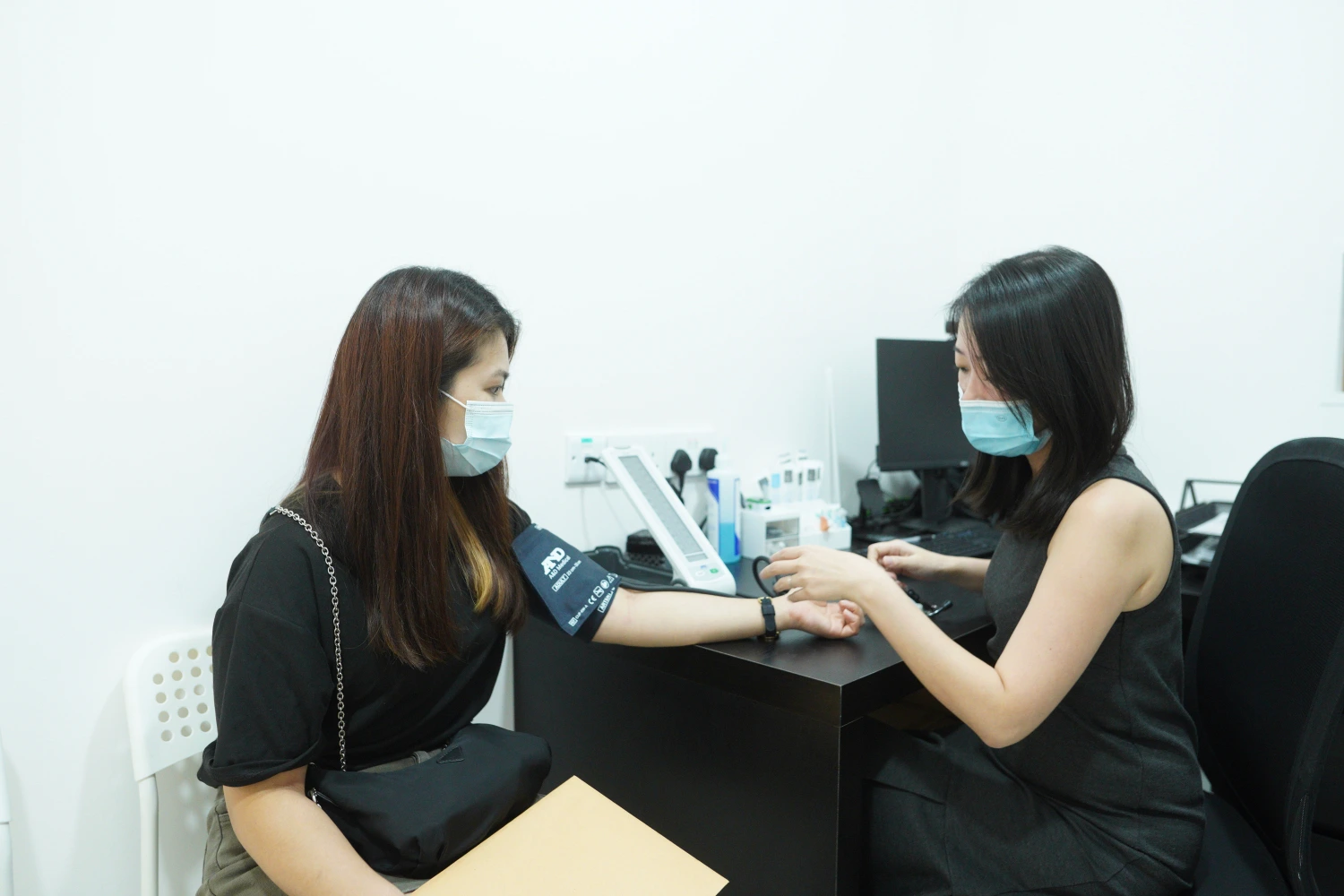
What is a Colonoscopy?
A colonoscopy is a medical test that allows doctors to look inside the large intestine, including the colon and rectum, in real time. During the procedure, a healthcare provider inserts a thin, tube-like device called a colonoscope—equipped with a camera—into the patient's anus. This helps the doctor directly see the inside of the large intestine. Colonoscopies are an important tool for diagnosing many digestive system problems and are considered the best method for screening and treating colon polyps and cancer.
Recommended Guidelines and Risk Factors for Colorectal Cancer Screening
An individual is considered to be at elevated risk for developing colorectal
cancer if they have a family history of either cancer or polyps, or if
they have been diagnosed with inflammatory bowel disease. However, even in the
absence of these risk factors or symptoms, the latest United States Preventive
Service Task Force recommends screening for colorectal cancer from age of 45.
Although various alternative tests like the Fecal Immunochemical Test (FIT) and CT
scans of the colon are available — for which our clinic can advise on subsidy
eligibility for Singaporean residents — they are limited by sensitivities and risk
of CT related radiation. Colonoscopy therefore remains the most precise
method for evaluating colorectal health.
Our colonoscopies are performed by highly trained/skilled partners with multiple
years of experience in colonoscopy, dedicated to ensuring a comfortable and
medically accurate scope procedure to address your health concerns.
Is Colonoscopy Painful? Understanding Patient Experience and Sedation Options
A colonoscopy is generally a quick and mostly painless procedure for the majority of patients. Sedatives are commonly administered before the procedure to induce a relaxed, sleepy state, and pain levels are continuously monitored throughout. Most patients usually complain little to no discomfort during or after the procedure. If you have particular concerns about pain or discomfort, please feel free to talk to our doctors.
How to Schedule a Colonoscopy: Steps and Considerations
If you are considering a colonoscopy, we recommend first consulting with our
family doctors. This initial consultation enables us to assess whether a
colonoscopy is the most appropriate procedure for your specific health
concerns—since not all abdominal issues originate from the colon. After this
evaluation, we can refer you to the appropriate specialists to perform the
colonoscopy.
The initial consultation can be conducted either via telemedicine or
through an in-person visit at our clinics. Our friendly medical
team will guide you through the subsequent steps and provide further details
as needed.

Preparing for a Colonoscopy: What You Need to Know
Preparing for a colonoscopy involves a few key steps, though the procedure itself is
generally straightforward and minimally invasive. Prior blood tests
or X-rays are usually not needed for most patients. However, if you have notable
medical risk factors such as bleeding disorders or heart failure, our doctors will
assess your condition and may recommend additional testing or alternative diagnostic
methods.
One of the most crucial components of preparation is bowel-cleansing. This entails
consuming a specially formulated liquid designed to clear out the contents of your
bowel, thereby enabling a more accurate examination of the intestinal
lining. Our medical team will offer specific guidelines for this bowel
preparation to ensure optimal results for your colonoscopy.
Frequency of Colonoscopies: Guidelines Based on Individual Risk and Previous Findings
The frequency with which you should undergo a colonoscopy depends largely on the results of your initial examination. For most individuals, the recommendation is to begin colonoscopy screenings in their late 40s to early 50s. If you have a strong family history, screening at an earlier age may sometimes be required. If the examination reveals abnormalities such as polyps or inflammatory growths, your healthcare provider may recommend a follow-up colonoscopy within a 1-5 year time frame. Conversely, if your colonoscopy yields normal results, a subsequent examination is generally advised every 5-10 years.
Cost of Colonoscopy in Singapore: Pricing, Subsidies, and MediSave Options
The cost of a colonoscopy in Singapore can vary quite a bit depending on whether
it's done at a public hospital with subsidies or at a private clinic. Typically,
prices range from $2,000 to $5,000 SGD.
Keep in mind that subsidies in public hospitals are usually only available for
patients showing symptoms; screening colonoscopies generally do not qualify for
subsidies.
At ATA Medical, we strive to keep healthcare affordable. Our current price for a
colonoscopy is $2,398 SGD (all costs include GST and are not
inclusive of any additional charges like biopsies or medications if needed).
If you need more financial advice, please speak with our medical team. We can also
provide referrals to specialists based on your needs.
Plus, our
colonoscopies can be claimed through MediSave, up to $2,200, subject to
approval.

